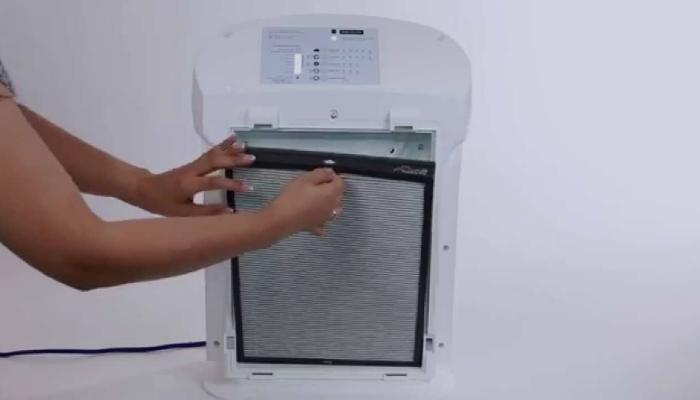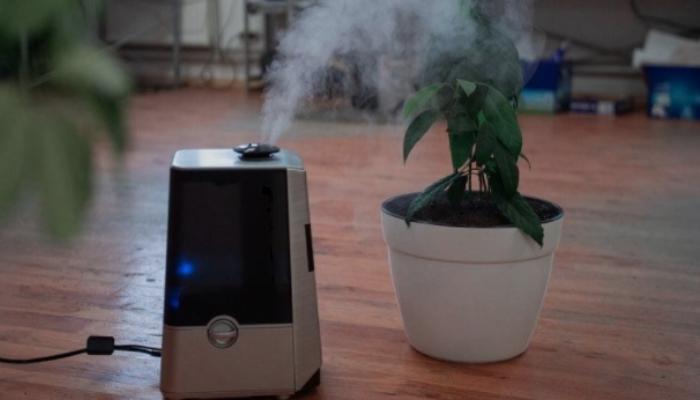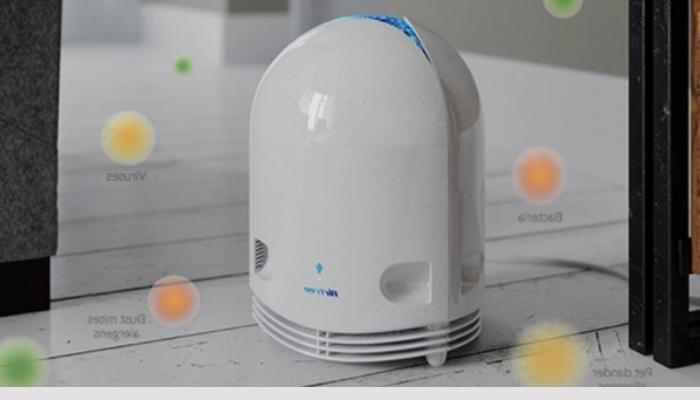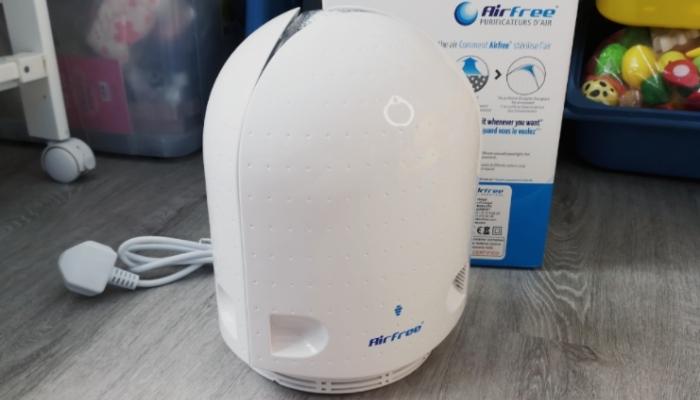Air purifiers have become part and parcel of every home during this pandemic. Hence, almost everyone is looking for an air purifier to remove the air contamination from their indoor space. But, choosing an air purifier isn’t a walk in the park as you need to make a quick and prompt decision on many options you will get.
One of the important considerations is the choice between filter vs. filterless air purifiers. While most people will stick to a filter-based air purifier, others will say a filterless air purifier isn’t bad either.
But, you can choose both and ultimately will have to take one. So, which one is better?
Here’s the answer-
Both filterless and filter air purifier works brilliantly, although filterless purifiers might cover a larger room than the filtered ones. However, you need to consider the contaminants the air purifier will work with accurately. So, the decision will go down to multiple requirements.
And today, we will discuss them to finalize your purchase shortly.
Filter Air Purifier Overview
Filter-based air purifiers are pretty common in our home. But, have you ever wondered how does it work? Also, what are its benefits?
Let’s dig deep into it.
What is Filter Air Purifier, and What Does It Do?
The filter-based air purifiers work straightforwardly with a fan. They have a fan that draws the air from the indoor space, and while the air passes through the purifier, its filters will trap the contaminated particles to purify the air. Although the mechanism may seem pretty easy, it goes through a series of filtering to purify the air.

The filters will get hold of the pollutants to remove them from the air as the air passes through the device. The efficiency of the device depends on the type of filter it has. For instance, HEPA air purifiers can remove 100% of contaminants up to 0.3-micron sizes.
Some of the common air purifiers with filters are:
- HEPA air purifier
- Carbon-activated air purifier
- Biotech air purifier
Benefits of filter-based air purifier
Filtered air purifiers bring several benefits along with them. Some key advantages of these air purifiers include the following ones.

- Filter air purifiers are generally more efficient than their counterparts. Since these devices use advanced filters, they can easily grab smaller pollutants and remove them from the air. Plus, many of these devices come with multiple filters to offer you better results.
- Another benefit of using filter-based air purifiers is their longevity. Since you can wash and replace the filters, it superbly boosts the device’s lifespan.
- The filter-based air purifiers are less likely to cause any ozone emission. Thus, you will enjoy a healthier indoor. Ozone emissions can hurt your respiratory system badly. The filtered air purifier is free from such dangers.
Disadvantages of filter-based air purifiers
Although the filter of an air purifier does an excellent job of cleaning your indoor air and freeing it from pollutants, it’s not free of setbacks.

- The filter air purifiers aren’t financially profitable. You need to maintain and replace the filters timely, and it could be costly at times.
- Filter air purifiers are generally louder. So, it could be problematic if you have babies at home. Also, louder operation means it could disturb your sleep badly.
Filterless Air Purifier Overview
Filterless air purifiers sit at the opposite end of the filter-based air purifiers. They mainly function with UV-rays or ionizers to remove the pollutants from the air to offer you a clean and healthy interior. These filters are generally quiet and run for a long time.
What is Filterless Air Purifier & what does it do?
Filterless air purifiers don’t come with mechanical filters. They apply different techniques to sanitize the polluted air. Since it doesn’t have any filters, the maintenance of the filterless air purifier is easy and convenient.

Some common filterless air purifier types are:
- The UV air purifiers are the most common ones. It uses UV-rays to remove the pollutants and even kill the germs to clean the indoor air.
- Then, there’s the ozone-based filterless air purifier. These air purifiers will produce ozone gas to eliminate the contaminants from the air. The additional oxygen molecule of the produced ozone connects with the pollutants and quickly kills it.
- The ionic air purifier, aka ionizers, is similar to the ozone-based filterless purifiers. These devices release negative ions in the air. This negative ion sticks with the pollutants to reverse its charge. Thus, the germs lose their ionic equilibrium and eventually kill the ionizer.
The benefit of Filterless Air Purifier
Filterless air purifiers are more adept at killing microorganisms. Also, it needs the least energy to function. Hence, most versatile battery-operated air purifiers are mostly filterless devices. Some key advantages of these devices include:

- Filterless air purifiers are generally economical. You don’t need to replace and maintain the filter inside it time. Henceforth, it doesn’t cost you anything once you purchase the filterless air purifier.
- A filterless air purifier doesn’t work with fans. Therefore, these devices are quieter. It is a great benefit if you have babies at home and for peaceful and undisturbed sleep.
- Filterless air purifiers are more efficient in killing germs than filter-based counterparts. Its ionic and UV-ray-based mechanism can kill the pollutants with brilliant accuracy. So, you will get better air with these devices.
Disadvantage of Filterless Air Purifier
The main disadvantage of a filterless air purifier includes its ozone and UV ray production. These are harmful to human bodies. Also, filterless air purifiers might last less than filter-based ones. Its common setbacks are:

- Ozone and UV-ray-based filterless air purifier will produce ozone and UV rays. These are harmful to human beings, especially if produced in large quantities.
- Although they might be better at killing germs, these filters aren’t as efficient as the HEPA filters. It doesn’t remove large pollutants from the air.
What Is The Difference Between An Filter Vs Filterless Air Purifier?
There’re significant differences between filterless and filter-based air purifiers. You need to look at them to know which one suits your requirements.

Pollutant Removal Facility:
You can use filter air purifiers to remove pollen, dander, mite, and dust from the interior air. The HEPA filter works brilliantly in eliminating pet dander and pollen particles from the air. On the contrary, filterless purifiers work better with germs. Especially, ionic air purifiers are better at cleansing germs and bacteria and are found in hospitals.
Coverage:
Filterless air purifiers generally cover a large space than filter air purifiers. For instance, ionic and UV-ray air purifiers can cover up to 3500 sqft. And 2000 sqft of room with ease, respectively. On the contrary, filters such as HEPA filters can only cover 1000sq.-ft space. Thus, you should opt for filterless air purifiers if you need to cover a larger space.
Maintenance:
Filterless air purifiers stay ahead of filter-based ones for maintenance and replacement costs. Since you don’t need to remove the UV-ray or ionizer-producing part of the filters, these devices need the least maintenance.
On the contrary, filter-based air purifiers need regular maintenance. You need to clean the filters and also have to replace them timely. It is costly. So, be aware of it.
Loudness:
The last thing you won’t want is your air purifier causing a disturbance in your sleep with its loud noise. Thus, you should opt for quieter devices. Generally speaking, filter air purifiers are noisier than filterless ones. The filter purifiers run with a fan, and it generates noise. Filterless devices don’t have such inconveniences.
Energy-consumption:
Filterless air purifiers are better energy efficiency. The UV-ray and PCO filters consume the least energy and won’t increase your utility bills. On the other side, filter-based purifiers consume more energy, but it’s not very noticeable.
| Point of Concern | Filterless Air Purifier | Filter Air Purifier |
| Pollutant types | Better at removing germs and bacteria | Ideal for pollen, dust, and pet dander |
| Coverage | Generally covers larger space | Suitable for smaller rooms |
| Maintenance | It needs the least maintenance | You need to clean and replace the filters regularly. |
| Noise | Quieter than filter-based purifiers | These devices are usually a bit noisy |
| Energy-consumption | It needs the least electricity | On average, filter air purifiers need more electricity. |
Winner?
Although filterless air purifiers are quieter, better energy-efficient, and need less maintenance, filter-based air purifiers aren’t far behind either. The selection will come down to the types of pollutants you want to remove from the air.
For instance, HEPA filters will be your ultimate choice if you need to remove pollen and pet dander from the environment. It is also helpful for those who suffer from allergies. On the contrary, the filterless air purifier will remove germs from the air. So, you may choose to enjoy a germ-free and healthier indoor at home.
So, we leave the decision on your preference and requirements.
Can You Use An Air Purifier Without A Filter?
Previously, the filter was the pillar stone of filters to function properly. But, these days, you can use air purifiers even without the filters due to technological advancement. You may choose UV-ray, ionizer, POC, or ozone-based filterless air purifiers. These devices will efficiently kill germs and bacteria to offer you healthier air.
Frequently Asked Questions
Are filterless air purifiers good?
Yes, filterless air purifiers are worth the money. These filters can accurately eliminate germs, are quieter, and consume less energy. So, you can opt for them to enjoy cleaner and healthier air.
Do all air purifiers have filters?
No, not all air purifier comes with filters. Only the filter-based conventional filters will have HEPA or carbon-activated filters.
Is a HEPA filter better than a regular filter?
Yes, a HEPA air purifier is way better than a regular filter. It can collect pollen, pet dander, and even microorganisms up to 3 microns to offer the best purifying result.
Do ionization filters work?
We don’t recommend you buy an ionization air purifier. It produces ozone to hurt human health and is also not efficient at removing pollutants from the air.
Final Thoughts
The filter vs. filterless air purifier discussion suggests that both devices are relatively efficient. However, the air-purifying capacity of these devices depends largely on your requirements. Usually, air purifiers with filters are suitable for regular cleansing to eliminate pollen and dander. On the contrary, a filterless air purifier works better at removing germs.
You could choose the filterless air purifier with PCO technology to enjoy better indoor air without any major device maintenance. Nonetheless, HEPA filters won’t be a bad choice either.
